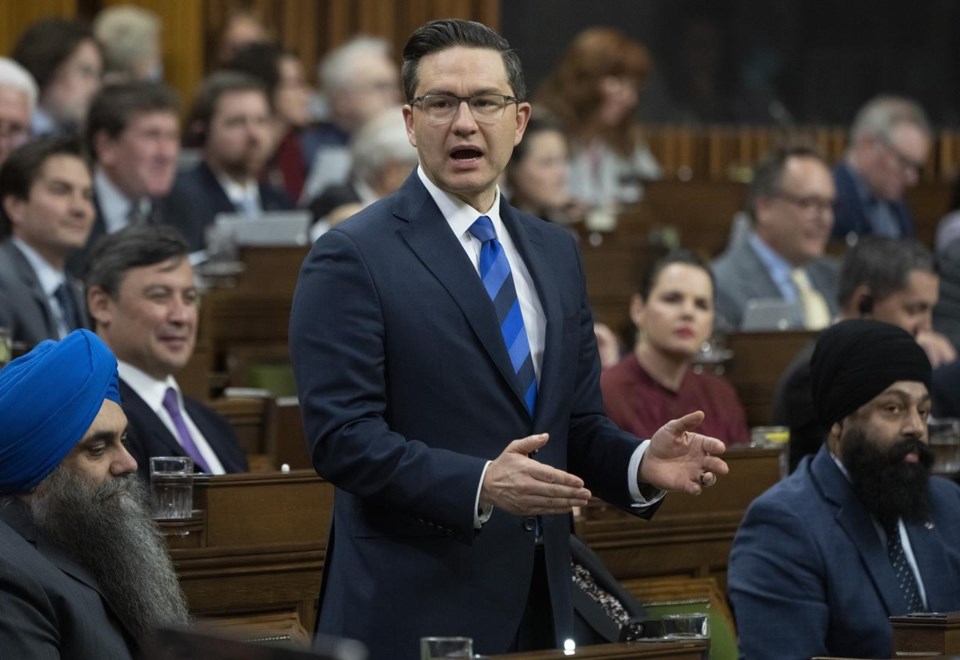OTTAWA — Pierre Poilievre said Wednesday he would honour the health-care increases Prime Minister Justin Trudeau has offered provinces if his Conservatives form the next government.
The Tory leader made the pledge a day after Trudeau proposed increasing health-care transfers by $17 billion above previous commitments, and providing another $25 billion via one-on-one deals with provinces over the next decade.
"We are going to honour it," Poilievre told reporters before a meeting with his caucus.
The Tory leader echoed criticisms from some premiers that the overall increase falls far short of what provincial and territorial leaders were hoping for, after years of complaints that Ottawa isn't paying its fair share of health-care costs.
Poilievre had been tight-lipped until Wednesday about whether Conservatives shared premiers' belief that more federal spending was needed to fix health care, and if his party was willing to meet their demands. His silence prompted attacks from the federal New Democrats.
Speaking to reporters, Poilievre touted that under the former Conservative government of Stephen Harper — which he served in until it lost power to Trudeau in 2015 — health transfers to provinces were increased annually by six per cent.
The deal he was referring to had been negotiated by the previous Liberal government of Paul Martin.
Harper's government decided to reduce the annual increase in health transfers to a minimum of three per cent, or more according to economic growth, beginning in the 2016-2017 financial year. Trudeau's Liberals decided to continue with that approach.
This week, Trudeau invited all 13 provincial and territorial leaders to Ottawa to present an offer that would see transfers to the provinces rise by a combined $196 billion over the next 10 years.
Despite their stated disappointment, many premiers have signalled a willingness to accept the offer, with Trudeau saying he wants to begin negotiations on individual deals.
Under those deals, premiers would have to agree to conditions that Trudeau says would ensure the funding boost result ins improvements to four federally stated priority areas: data collection, mental health, staffing and the availability of family health services.
Premiers have bristled about the federal government telling other jurisdictions how the money will be spent, and it became a sticking point in the lead-up to negotiations.
Asked whether Poilievre believes in attaching strings to federal health spending, he said he believes in having "shared goals" with provinces, such as efforts to speed up foreign credential recognition for immigrants — something Trudeau said Tuesday he wants to fix.
"Shared goals. I like the term 'shared goals,'" Poilievre said.
This report by The Canadian Press was first published Feb. 8, 2023.
Stephanie Taylor, The Canadian Press



